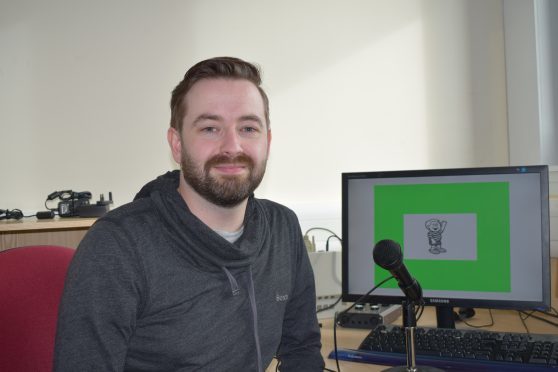The distinctive Dundonian brogue is at the centre of new international research into how our minds process dialects and languages.
Academics from Abertay University partnered with RWTH Aachen University, Germany, to study how quickly the brain reacts when asked to switch between standard speech and regional dialects.
During the study, participants were given a list of both English and Dundonian words which then appeared on a colour-coded screen in randomised order.
Depending on the colour, they were asked to say the word in either English or Dundonian – for example, responding “house” if the image was coloured green or “hoose” if the image was blue.
Other words included in the survey were girl/lassie, armpit/oxter, heart/hert, sausages/sassages, ears/lugs, and children/bairns.
Researchers at RWTH, researchers carried out the same experiment with people using standard German and the regional Öcher Platt dialect.
The results suggest different dialects (or closely related language varieties) are stored in the brain in similar ways to different languages.
Project leader Dr Neil Kirk, of Abertay’s Division of Psychology, said: “In most other studies our bidialectal participants would simply be considered ‘monolingual’, as language background questionnaires typically do not enquire about dialect usage.
“Yet the results of our study show that some monolinguals and bilinguals are cognitively not that different.”
Both sets of researchers found a “switch cost”, where it took participants longer to name pictures when they were asked to move from speaking one variety to another.
They also discovered that this cost remained the same for people comfortable with both English and Dundonian, regardless of which direction the switch went in.
However, for those with one language stronger than the other – in this case English participants with little or no previous experience of Dundonian – the cost was greater when reverting back to speaking English.
Dr Kirk, who conducted the research as part of his PhD, added: “One explanation for this is that both varieties are always active, but in order to speak one of them, you need to suppress or inhibit the other variety.
“More cognitive effort is required to suppress a stronger variety and this creates a delay in being able to activate it again.”











